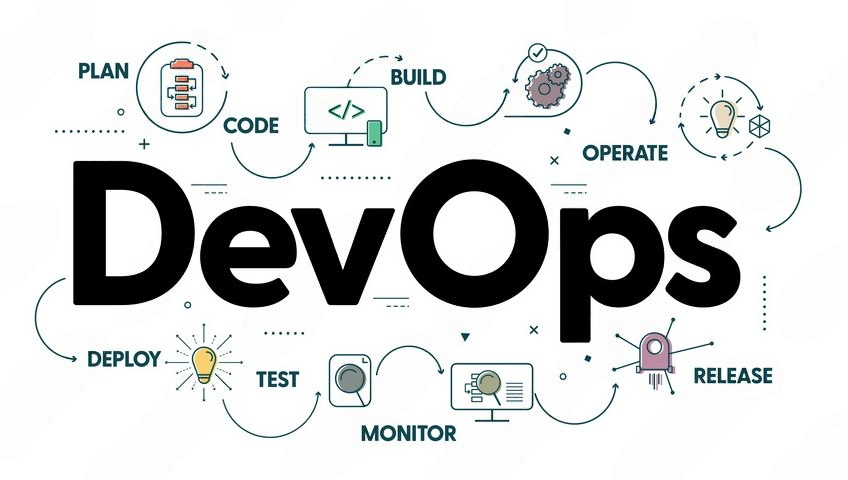What is DevOps and Why You Should Learn It in 2025
Introduction to DevOps
DevOps is a set of practices that combines software development (Dev) and IT operations (Ops) to shorten the development lifecycle while delivering features, fixes, and updates frequently in close alignment with business objectives. It's not just a methodology or a set of tools; it's a cultural shift that brings together development and operations teams to work collaboratively.
Key Components of DevOps
- Continuous Integration (CI): Developers frequently merge their code changes into a central repository, where automated builds and tests run. This practice helps identify integration issues early, ensures code quality, and enables faster development cycles.
- Continuous Delivery (CD): Automatically deploying code changes to testing and production environments after passing automated tests. This creates a reliable, repeatable release process that reduces deployment risks and accelerates feature delivery to users.
- Infrastructure as Code (IaC): Managing infrastructure through code rather than manual processes. This approach improves consistency, enables version control for infrastructure configurations, and allows teams to quickly provision environments with minimal errors.
- Monitoring and Logging: Tracking application and infrastructure performance through comprehensive data collection. These practices help teams identify issues proactively, understand system behavior, and make data-driven decisions for continuous improvement.
Why Learn DevOps in 2025?
- High Demand: Organizations across industries are rapidly adopting DevOps practices, creating a significant skills gap. Qualified DevOps professionals are sought after, with job postings consistently outpacing available talent in the market.
- Competitive Salary: DevOps professionals command higher salaries ($90,000-$150,000) due to their cross-functional skills. Their ability to bridge development and operations makes them valuable assets worth the premium compensation.
- Career Growth: DevOps skills open doors to diverse roles like DevOps Engineer, SRE, Platform Engineer, and Cloud Architect. The versatile skillset provides multiple advancement paths and opportunities to specialize in emerging technologies.
- Industry Transformation: As cloud-native applications and microservices architectures become standard, DevOps expertise becomes essential. Organizations need professionals who can manage complex, distributed systems and automate deployment processes effectively.
Essential DevOps Skills for 2025
- Cloud Platforms: Proficiency with AWS, Azure, or GCP is crucial as most applications now run in the cloud. Understanding cloud services, architecture patterns, and cost optimization strategies will be fundamental to DevOps success.
- Containerization: Docker for packaging applications and Kubernetes for orchestration are industry standards. These technologies enable consistent environments, simplified deployments, and efficient resource utilization across the application lifecycle.
- CI/CD Tools: Experience with Jenkins, GitLab CI, or GitHub Actions to automate building, testing, and deploying code. These tools streamline software delivery, improve quality, and enable teams to release features more frequently.
- Infrastructure as Code: Skills in Terraform, Ansible, or CloudFormation for automating infrastructure provisioning. These tools allow infrastructure to be treated like software—versioned, tested, and deployed through consistent, repeatable processes.
- Programming Languages: Competency in Python, Go, or Shell scripting to automate tasks and build custom tools. Scripts and applications that automate routine operations are essential for efficient DevOps workflows.
- Monitoring Tools: Familiarity with Prometheus, Grafana, or ELK Stack to gain system insights. These tools help teams track performance, detect anomalies, and respond to incidents before they impact users.
Getting Started with DevOps
- Learn the Basics: Begin with Linux fundamentals, networking concepts, and basic scripting. These core skills form the foundation for understanding how systems communicate and how to automate routine tasks.
- Version Control: Master Git for tracking code changes and collaborating with teams. Understanding branching strategies, pull requests, and merge conflicts is essential for modern software development workflows.
- Automation: Learn to automate repetitive tasks using scripts and tools. Start with simple shell scripts to automate backups or deployments, then progress to more complex automation scenarios.
- Cloud Platforms: Get hands-on experience with at least one major cloud provider. Build small projects using different services to understand how they work together in real applications.
- Containerization: Practice building and running containers with Docker, then orchestrating them with Kubernetes. Start with containerizing a simple application before attempting more complex microservices architectures.
- CI/CD: Set up continuous integration and deployment pipelines for your projects. Begin with simple pipelines that build and test code, then add deployment stages as you gain confidence.
Conclusion
DevOps is not just a trend; it's a fundamental shift in how software is developed and delivered. As we move further into 2025, the importance of DevOps skills will only continue to grow. Whether you're a developer looking to expand your skill set or an operations professional seeking to modernize your approach, learning DevOps is an investment in your future career.
Frequently Asked Questions
What programming languages are best for DevOps?
Python, Go, and Shell scripting are most commonly used in DevOps for automation and orchestration tasks. However, the best language often depends on your team's needs and the specific tools you are integrating.
Do I need to know coding to start with DevOps?
While you don't need to be an expert programmer, basic scripting knowledge is highly recommended. Coding helps you automate tasks, integrate tools, and solve problems more efficiently in a DevOps environment.
Is DevOps only for large companies?
No, DevOps practices benefit organizations of all sizes. Small startups to large enterprises can leverage DevOps to improve efficiency, collaboration, and product quality, making it a valuable approach regardless of company size.

